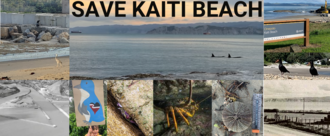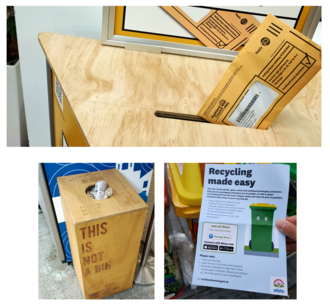-
Upgrade Awatea Park Playground to increase more resourcesI believe that by installing at least Swings, a Monkey bar, and a Seesaw, we can enhance the appeal of the playground for children and make it more enjoyable for them to play in. These relatively low-cost additions can make a significant difference to the quality of life for families in our community. I have spoken to several other residents who share my sentiment, and I am confident that with your support, we can make a meaningful difference. By signing this petition, you are helping us to demonstrate to the City Council the importance of improving our playground and making it a more family-friendly space.156 of 200 SignaturesCreated by Vishal Makwana

-
Wayne Brown: Don't Cut Community Services!NO CUTS Wayne Brown’s Budget 2023/24 is proposing to cut funding to crucial community support services during a cost of living and climate crisis. The people of Auckland are deeply concerned about the proposed budget. We understand that the Council is facing financial challenges, but we urge Auckland Council to reconsider these cuts as they will have a severe impact on the community. “Cutting regional community focused initiatives … of all groups working with Māori, Pasifika, youth, refugee, new migrant and rainbow communities.” - Page 30, Te Wāhanga Tuatoru: Te Pūtea e Marohitia Ana, Annual Budget Proposal 2022/23. We can see the budget has targeted marginalized communities, yet does not suggest cuts to industry and business whatsoever. The proposed budget cuts will have far-reaching consequences for all Aucklanders, but especially our most vulnerable residents, including children, the elderly, the working poor, and those with disabilities. Cuts to climate change, social services, community venues, public transport, arts,and education will have a devastating impact on these communities, and protesters are determined to make their voices heard. The proposed cuts to community services, including libraries, community venues and centers, youth and homelessness, early childhood education, Arts and culture, water quality and public transport, will have a negative impact on the quality of life for many Auckland residents. These services are essential for the well-being of our community and provide opportunities for social interaction, education, and access to essential resources. Furthermore, the proposed cuts to environmental initiatives, including park maintenance and waste management, will have a detrimental effect on our environment. These initiatives are critical to the sustainability of our city and the protection of our natural environment and resources. We understand that difficult decisions must be made regarding the budget, but we urge the Council to prioritize the needs of the most vulnerable. We believe that alternative solutions and a better budget is possible. The Auckland council’s feedback report suggested that the majority of Aucklanders reject this proposed budget, and it is not suited to serve Auckland residents. The sale of the airport shares is not necessary or helpful and will take Auckland backwards. The airport shares are an important revenue stream, the airport is increasing in value, and it is an asset that the Council can borrow against. The 18% shareholding is also an opportunity for public voice on the future of the airport, a strategic asset - and it is important that the Council holds onto public control in the face of climate and health emergencies. The Community Coalition against the Cuts demands that Auckland Council, Mayor and Councilors listen to Aucklanders. Consider and implement the voices of Aucklanders who took their time to give their feedback. We fully reject this proposed budget, and we demand the following: 1- NO CUTS TO REGIONAL & COMMUNITY SERVICES 2- INCREASE RATES & DEBT 3- NO SALE OF AIRPORT SHARES The super-rich must pay for this budget deficit, not the most vulnerable. We demand that any shortfall in the Council's books should be filled through increased rates on big business, and charges on luxury items such as private helicopters and super-yachts, not cuts which hit the poorest hardest. We need to be expanding services, not cutting them. We demand that the Council expands public transport, making buses and trains free and frequent, and takes more action on climate change amidst a climate crisis. We demand more funding to tackle poverty and homelessness. Therefore, we call on Auckland Council to reconsider the proposed budget cuts and to find alternative solutions that do not compromise the well-being of our community and our environment. We fully reject this budget we will not sit by quietly. We say, NO CUTS! Community Coalition Against Cuts252 of 300 SignaturesCreated by Community Coalition Against Cuts

-
Ensure tertiary students can sit exams without invasive barriersIt's invasive. RPNow requires all users to provide webcam access to their bedroom or private spaces and that data is collected and assessed by staff who do not work for the University, and that data is at high risk of being hacked or breached. It's inequitable. Students who cannot afford a laptop with webcam, microphone and those who do not have a strong internet connection can't access the examinations that they paid for. Students may not be able to book limited university spaces to sit these exams, or able to provide a safe quiet space at home to sit them. It's not culturally competent. Many of our tauira live in whanau based situations, that don't provide for silent or private spaces to take examinations at home. These students will fail if the microphone detects other voices speaking. It's just plain wrong. Students will go to other Universities that don't invade their privacy by implementing invasive and unsafe, low trust systems. Students have a right to be heard, and their voice matters. Universities should not be implementing significant changes to assessment without first consulting with students.18 of 100 SignaturesCreated by Jake Law
-
Open Letter: Pass a law requiring all employers to be transparent about pay gapsEveryone should be safe at work, treated with dignity, and rewarded fairly for their work. But right now, many of our friends, neighbours and family members aren’t being paid or promoted fairly, simply because of their gender or ethnicity. The recent Te Kāhui Tika Tangata Human Rights Commission National Pacific Pay Gap Inquiry Report found that in 2021 for every dollar earned by a Pākehā man, Pākehā women were paid just 89 cents. For Māori men that drops to 86 cents and Māori women 81 cents. For our Pacific whānau, men were paid just 81 cents and Pacific women only 75 cents. This gap means people are not only missing out on crucial wages but opportunities to fulfill their potential and make meaningful choices about their lives. By closing this pay gap we could ensure everyone in our communities has the opportunity to thrive and those families on the lowest wages can unlock the constraints of poverty. Supporting employers to do the right thing and to be transparent about their pay gap is a good first step to help close this gap. Many employers are already playing their part by reporting on their ethnic and gender pay gaps and taking action to close these. Organisations that have signed this open letter: AAAP ActionStation Aotearoa Amnesty International ANZ New Zealand Aotearoa Latin American Communities (ALAC) Auckland City Mission Auckland Women's Centre Aukilani Community Church Barnados Belong Aotearoa Centre for Pacific Languages Diversity Works DB Breweries Ltd E Tu F'ine First Union Fourshells Kava Lounge Gabriella Aotearoa New Zealand Global Women Inclusive Aotearoa Collective Tāhono Iranian Women in NZ K'aute Pasifika Trust Kore Hiakai (Zero Hunger Collective) Living Wage Movement Migrant Action Trust Migrant Workers Association Migrante Aotearoa New Zealand Nelson Tasman Pasifika Community Trust New Zealand Council of Trade Unions New Zealand Union of Students' Associations (NZUSA) NZ Council of Christian Social Services NZ Dairy Works Union NZ Ethical Employers Inc. NZEI Te Riu Roa Organise Aotearoa Pacific Women's Watch NZ (PWW-NZ) Pacific Pay Gap Campaign Pasifika Education Centre (PEC) Peace Movement Aotearoa Polynesian Panthers PSA Raise the Bar Renters United Salvation Army Save the Children SkyCity Entertainment Group Te Kāhui Tika Tangata Human Rights Commission Tertiary Education Union Te Hautu Kahurangi o Aotearoa Tōfa Mamao Collective Tongan Society South Cantebury Unite Union World Vision New Zealand Young Workers' Resource Centre Youth Employability, COMET AKL YWCA2,544 of 3,000 SignaturesCreated by Human Rights Commission
-
Create a Ministry of Green Works to build sustainable, resilient communitiesPeople in Aotearoa want the foundations of our communities to be resilient and sustainable for ourselves and for our grandchildren. We want our homes, our ways of getting around, the grids our power depends on, the pipes our water runs through, and the lines that underpin our communication to be reliable. Most of us want the work we do to make a difference in our communities and care for our beloved natural environment. The destruction from Cyclone Gabrielle and climate-charged flooding in Auckland have shown the urgent need to strengthen those foundations. Decades of underinvestment in essential infrastructure by people in successive governments has left our communities vulnerable. Instead core public development has been contracted out into sporadic projects. This has diverted funding into corporations’ pockets and created unstable employment for workers. The piecemeal approach has also led to the loss of the public sector knowledge that is needed to respond to large scale challenges. We need new institutions designed to do what works to make a just transition from dependency on fossil fuels and high-emission industries. Institutions that can respond to immediate needs, plan for long-term and large-scale change, and embrace Te Tiriti o Waitangi and the leadership of tangata whenua. A Ministry of Green Works would: - Deliver a mass scale build of beautiful, sustainable public housing to reduce the shortage of homes - Roll out an integrated network of passenger rail - Bring resources and support to community-led adaptation and in places that are now vulnerable to climate disasters - Train up the next generation of apprenticeships and essential workers for green infrastructure that is resilient in the face of future challenges The Ministry of Green Works will support Te Tiriti-based governance by resourcing tino rangatiratanga so that hapū can lead in this space as well. It will not be able to take land and could also play a role in recommending that land be transferred to Māori supervision as part of good environmental management. What we build, whether it be marae, public transport or storm water drainage, has the power to nourish our environment and reduce inequities. But we need the government to put a Ministry of Green Works in place now to build the future our grandchildren deserve. Further reading here: https://apo.org.au/node/3154991,961 of 2,000 SignaturesCreated by Team ActionStation

-
Protect the Right to Life with Dignity of the Banaban CommunityAs a colonial power, New Zealand exploited Pacific Islands including Banaba, part of modern-day Kiribati, where 90% of the island’s surface was mined by the British Phosphate Commission – jointly owned by the British, Australian, and New Zealand governments – from the early 1900s to the end of the 1970s. This extractive practice left behind barren and uninhabitable land, resulting in the forced resettlement of Banabans to Rabi island in Fiji in 1945. To this day, Banabans on Rabi face discrimination as a nation of people falling between jurisdictions with none wanting to take responsibility.536 of 600 SignaturesCreated by ICAAD (Intl Center for Advocates Against Discrimination)

-
Urgent call for FREE cervical screening!The National Screening Unit is currently planning for the upcoming HPV cervical screening programme, due to start later this year. This will be the ONLY national health screening programme not fully funded by the Government. To ensure costs for screening and follow-up tests are not barriers, we are calling for a fully funded, equitable screening programme. This includes FREE screening and follow-up, diagnosis, and treatment. Unless urgent action is taken by the Government to change what is proposed, there will be preventable deaths from cervical cancer. Whānau need their kuia, taua, māmā, whaea and tamāhine, to flourish. No one should die of this preventable cancer. Please sign and share this petition - ngā mihi. On behalf of the many who want this change, those who are undergoing treatment, and in memory of those who have tragically lost their lives to this cancer. This petition is supported by Mana Wāhine, Te Tātai Hauora o Hine (National Centre for Women's Health Research Aotearoa), Hei Āhuru Mōwai Māori Cancer Leadership Aotearoa, the Royal Australian and New Zealand College of Obstetricians and Gynaecologists, the New Zealand College of Primary Health Care Nurses, Tū Ora Compass Health, Family Planning New Zealand, the Public Health Association of New Zealand, The New Zealand College of Sexual and Reproductive Health, Dr Hinemoa Elder, Mayor Tory Whanau, The Cause Collective, Lingy Noiid, and Te Awakairangi Health Network. Please note, in addition to individual signing, endorsement from organizations is welcome and can be detailed above. More information can be found at: https://www.heiahurumowai.org.nz/_files/ugd/b7edfc_621f3417d3b84349be2ed6372d479d30.pdf https://www.heiahurumowai.org.nz/_files/ugd/b7edfc_55f99468f6b44586af3462171d8f0902.pdf3,969 of 4,000 SignaturesCreated by Ande Childerhouse
-
Amnesty for OverstayersEstimates are that Aotearoa has approximately 14,000 people without any visas or legal status. These are migrants, their whānau and tamariki who have been living in fear during some of the worst challenges we have faced as a country. They are victims of our regressive immigration policies, not criminals. Overstayers deserve to lead a life with dignity and respect. They deserve to be safe and deserve to be helped, especially during hard times like the Northland floods and Cyclone Gabrielle. With the current system, overstayers have hesitated to seek medical help such as covid tests and covid vaccination, for the fear of being reported to authorities and subsequently being deported. And now many of them are flood victims afraid of seeking assistance provided by the government. This is potentially a dangerous and unsafe health situation, not just for the victims but for the entire communities surrounding them. Many of our overstayers are children of parents who do not have lawful status. It is harsh and unfair to punish the children by depriving them of access to needed services such as health care providers, education and safety services. Researchers at UNITEC published an excellent report highlighting the plight of overstayers and their families – the stresses are multi-fold and affect their mental well-being. The solution proposed by researchers is also policy change and legal status for the overstayers. Link to the full report: https://www.unitec.ac.nz/sites/default/files/public/documents/Tuvalu%20project%20report%20-FINAL-13.12.2021.pdf An amnesty for all overstayers regardless of their country of origin is the need of the time.While we appreciate that the Prime Minister is going to look at the petition regarding Pacific overstayers, he needs to be inclusive and act sooner than later. We ask the Prime Minister to give overstayers work rights and their children access to public education, allowing them to lead a life of dignity.1,156 of 2,000 SignaturesCreated by Anu Kaloti
-
Save Auckland CABs!The service provided by Auckland CABs is absolutely essential – something that is even more apparent in times of crisis. With the recent floods and the ongoing challenges of daily life, Auckland CABs are helping people with information and advice and connecting them with the support they need. Last year our dedicated volunteers in Auckland CABs helped more than 160,000 people. Auckland Council is proposing to significantly cut or even remove all funding from CABs in Auckland in its budget for 2023/24. This could result in the complete closure of the CAB service, which has been serving Tāmaki Makaurau for over 50 years. Let Auckland Council know that they should not cut funding to Auckland CABs.22,592 of 25,000 SignaturesCreated by Sacha Green
-
Include the queer community, women and disabled people under hate speech law changesIn 2022, there have been numerous attacks on the queer community. An arsonist burned down the Rainbow Youth drop-in centre in Tauranga. Gloria of Greymouth, a pink queer church, was vandalised with anti-queer and religious symbols. The owner of Woof!, a queer bar in Dunedin, received two anonymous death threats through the bar's social media account and messages from Freedom and Rights Coalition leader and Destiny Church pastor Derek Tait, of Christchurch, including an image of Tait pointing at the bar. Hours after the Labour Party announced that it will exclude the queer community from protection under hate speech laws, a 22-year-old gunman entered Club Q, a queer nightclub in Colorado, and immediately opened fire, killing at least five people and injuring 25 others. In 2017, an Auckland pastor Logan Robertson said he was "not against [gay people] getting married as long as a bullet goes through their head the moment they kiss". That statement will remain legal under the government's changes to hate speech laws. Are we waiting for a mass shooting inspired by homophobia and transphobia to transpire at a New Zealand queer bar before we protect queer people from hate speech that incites violence? How many lives will it take before the government protects us? There is well-documented hatred against queer people to necessitate the protection of queer people under hate speech laws. The government's failure to do so will embolden homophobic and transphobic groups, extremist religious groups, and right-wing groups to incite violence against queer people. The government must protect the queer community, women and disabled people under the hate speech law. https://www.stuff.co.nz/national/crime/129122700/man-admits-antisemitic-and-homophobic-attack-on-west-coasts-pink-church https://www.nzherald.co.nz/nz/destiny-church-pastor-accused-of-intimidation-after-posing-outside-queer-friendly-bar-in-dunedin/SXLGUMQ6Y5LO6SZEOWNW4ZQ3DM/ https://www.stuff.co.nz/bay-of-plenty/300700598/pair-plead-guilty-to-burning-down-rainbow-youth-building https://www.newsroom.co.nz/nzs-hate-speech-laws-explained https://www.stuff.co.nz/national/politics/300743361/hate-speech-reforms-drastically-watered-down https://www.theguardian.com/us-news/2022/nov/20/people-killed-shooting-at-colorado-springs-nightclub10,575 of 15,000 SignaturesCreated by Shaneel Lal
-
Save Kaiti Beach; PROTECT our History and BiodiversityEastland Port is planning to carry out substantial construction work to expand their port in Tūranga-nui-a-Kiwa Gisborne. This includes further reclamation of reef and ocean space near the river mouth and more dredging with disposal of materials to the off shore disposal ground located within the bay.(1) These proposed works would create further loss of habitat for taonga species, fail to respect significant cultural values and will distort a precious historical site of Aotearoa New Zealand. The species currently occupying this area are Kororā (little blue penguin), Toreā (oystercatcher), Taranui (caspian tern), Matuku Moana (white faced heron), Kāruhiruhi (pied shag), Kawaupaka (little shag), Tākapu (gannet), Karoro (black backed gull), Kōtare (kingfisher), Kekeno (fur seal), Whai (stingray), Kōura (crayfish), Kākahi (fresh water mussel), Pāpaka nui (purple rock crab), Kina (sea urchin), Manaia (seahorse) to name a few. Orca whales also feed from the reef with their young at certain times of the year. Previous construction work by Eastland Port destroyed an estimated 35 to 70 kororā (little blue penguin) nests during the breeding season in 2021. The habitat was located within the rock wall where the port carried out demolition and reclamation.(2) The consent granted to Eastland Port was a Limited notification which didn't allow for Public Submissions. The site of the proposed works is described as nationally and internationally significant to our country. A natural reef formation used by ancestors of Māori as a landing point dating back many centuries ago. The landing entrance later saw an arrival of Europeans. Kaiti Beach represents a significant historical site used by both our Māori and Pākehā ancestors. In the words of Dame Anne Salmond: “The foreshore of the Tūranaganui River is one of the world’s great voyaging sites. It is the landing place of the Horouta canoe, celebrating the achievements of the Polynesian star navigators. It is the place where Captain James Cook and his companions first came ashore in New Zealand, heralding the traditions of European exploration and discovery. It is the site where Tupaia, the Ra’iatean high priest navigator who sailed with Cook, first met Māori, marking the links between local people and their ancestral homelands. It is a meeting place of cultures, of challenges and shootings, as well as friendly exchanges. Here Captain Cook and a local man saluted each other with a hongi on Te Toka-a-Taiau, the first greeting between a Māori and a European. It is a sacred site for all New Zealanders, to be celebrated with pride and treated with dignity."(3) In the words of Sir Derek Lardelli: Te Toka-a-Taiau, the rock of Taiau, Te Pito o Te Ao, is the core of our universe, a Tairawhiti perspective Ko Te Toka-a-Taiau, Te herenga o ngā wai mai te hononga o ngā rua Te Toka-a-Taiau is the spiritual gathering place of our ancestors Ko Te Toka-a-Taiau, Te whakatinanatanga o te whakapapa We are the kaitiaki guardians of this very sacred site and Te Toka-a-Taiau is the physical reminder of our commitment to the land, the people and our environment Ko Te Toka-a-Taiau he mauri tipua Te Toka-a-Taiau is the spiritual essence of our ancestors Ko te Toka-a-Taiau he mauri tawhito Te Toka-a-Taiau is a spiritual essence from ancient times He mauri no te kukunetanga mai i Hawaiki The spiritual essence from the origins of time and the spiritual homeland of Hawaiki Mauritū nei hei ahurewa tapu That stands as a sacred alter Mauritū nei hei tūāhu tapu That stands as the launching pad of our destiny"(3) We believe all people of Aotearoa New Zealand would consider this a significant piece of history and we need to protect the area from further disruption and modification. We ask you to join us in saying “Enough!” to Eastland Port and Gisborne District Council. Join us in calling for the protection of this natural environment, a life source, a habitat of taonga species, a significant piece of history connecting each of us to our identity. We must protect it for future generations so they can connect to their history. This is our chance Aotearoa New Zealand, let's stand together, side by side to give this area the respect and dignity it deserves. Let it be your time in history to help shape this moment and move us all forward in an ethical direction to let the healing begin. Thank you for your time and consideration in signing this petition. This petition will be used as evidence for public support to deny the consent application submitted by Eastland Port. References: 1. https://www.gdc.govt.nz/consents-and-licenses/notified-consents/notified-consents/Eastland-port-limited 2. Recommendations for penguin management for the Waikahua seawall project at Eastland Port (December 2021). Dr. John Cockrem. https://www.gisborneherald.co.nz/frontpage-featured/20211223/seawall-deadly-for-korora/ 3. The Tūranganui River; A Brief History (October 2006). Michael Spedding. Articles: https://www.stuff.co.nz/national/126798579/little-penguins-left-dead-injured-and-homeless-after-seawall-rebuild-in-gisborne https://www.gisborneherald.co.nz/frontpage-featured/20211022/penguin-alert-locals-urged-to-keep-an-eye-out-after-korora-little-blue-pen/ https://www.gisborneherald.co.nz/local-news/20211027/call-hotline-first-regarding-wildlife-concerns-or-findings-department-of-c/ https://www.gisborneherald.co.nz/local-news/20211028/port-stops-work-pending-search-for-penguin-nests/ https://www.gisborneherald.co.nz/frontpage-featured/20211202/rallying-for-korora/ https://www.gisborneherald.co.nz/frontpage-featured/20211223/seawall-deadly-for-korora/ https://www.gisborneherald.co.nz/frontpage-featured/20220108/penguin-safety-fears/ https://www.gisborneherald.co.nz/frontpage-featured/local-news/editors-pick/20220603/taking-care-of-penguin-business/173 of 200 SignaturesCreated by Waikahua Kororā Kohanga Group .
-
Stop "wasted" votes influencing Auckland's future - change to the Single Transferable Vote systemOur Auckland local elections currently use the First Past the Post (FPP) voting system. If the candidate we vote for doesn't make the threshold, our votes are "wasted". There is a modern alternative. The Single Transferable Vote (STV) system will allow us the freedom of choice to rank our candidates and recycle our "wasted" votes. When our votes are guaranteed to count like this, it shows more respect to our individual sovereignty and needs, rather than forcing us to vote under the duress of the fear of "wasted" votes "vote-splitting". At least 1,863 voters wasted their vote when they voted for me in the Waitematā Local Board elections this year, under the current voting system (FPP). My favorite local board candidate would have been voted in if those 1,863 "wasted" votes would have been recycled under STV for him. I didn't know such an awesome fellow was running until I was already nominated, and I continued to run partly because there was a possibility that we could both be elected, and partly so I could speak up and illustrate with a poignant lived experience that the ability to recycle votes does matter in practice and not just in theory. Under FPP, neither of us two made the voting threshold. We wasted at least 9,139 votes - that's 10,000 people who spent at least an hour on this, 10,000 total work-hours of people doing their civic duty, wasted.... That's a problem for all FPP democracies, but there is a local solution already ready for us if you want to choose it! Under Section 29[1] and 30[2] of the Local Electoral Act 2001, if I present Auckland Council with signatures with names and addresses of 5% of all Auckland enrolled voters, then they are forced by central government legislation to hold a vote on changing our voting system to, say, STV. STV doesn't have wasted votes like our current one. Other more progressive cities in New Zealand[3], such as Palmerston North, which I'm proud to originate from, have already had and passed voting system referendums to switch to STV, because it allows better representation and limits the possibility of duopoly party voting blocs just aiming to do the bare minimum to capture the middle vote and play to fears of "wasted" votes. STV allows voters to vote with truth in their hearts for what they truly believe is their best choice, safe in the knowledge that that vote will be reused and recycled towards their other choices if it is "wasted". This respects individual sovereignty better than FPP, because voters are less able to be manipulated by fears of vote-wasting. I would like to bring the wider choices that the residents of these other areas enjoy in their voting system, to Auckland. If you can help me with this, then please sign this petition with your name and electoral enrolment address in the Auckland region. I will not use your name or address for any other purpose other than Section 29 of the Local Electoral Act 2001. It is illegal under New Zealand law (the Privacy Act) for me to do anything else with your personal information except this. So please vote, for better voting! Ngā mihi, Andi Liu / 刘安迪 2022 Waitematā Local Board candidate and Waitematā and Gulf Ward candidate References: [1] https://www.legislation.govt.nz/act/public/2001/0035/latest/DLM93979.html#DLM93979 [2] https://www.legislation.govt.nz/act/public/2001/0035/latest/DLM93985.html#DLM93985 [3] https://www.dia.govt.nz/diawebsite.nsf/wpg_URL/Resource-material-STV-Information-Index50 of 100 SignaturesCreated by Andi Liu


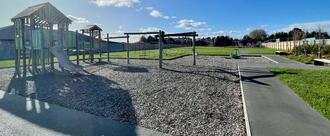
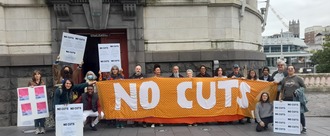
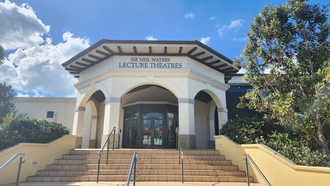
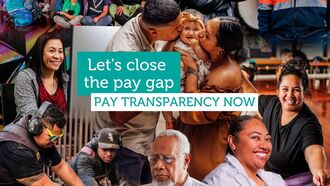
.png)
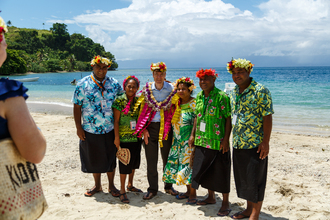%20(1).jpg)
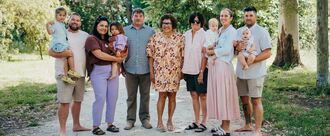
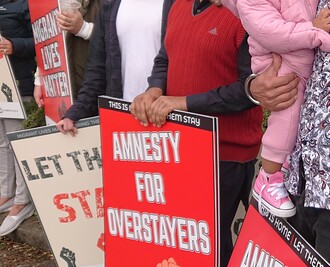
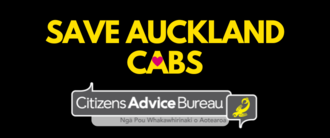.png)

